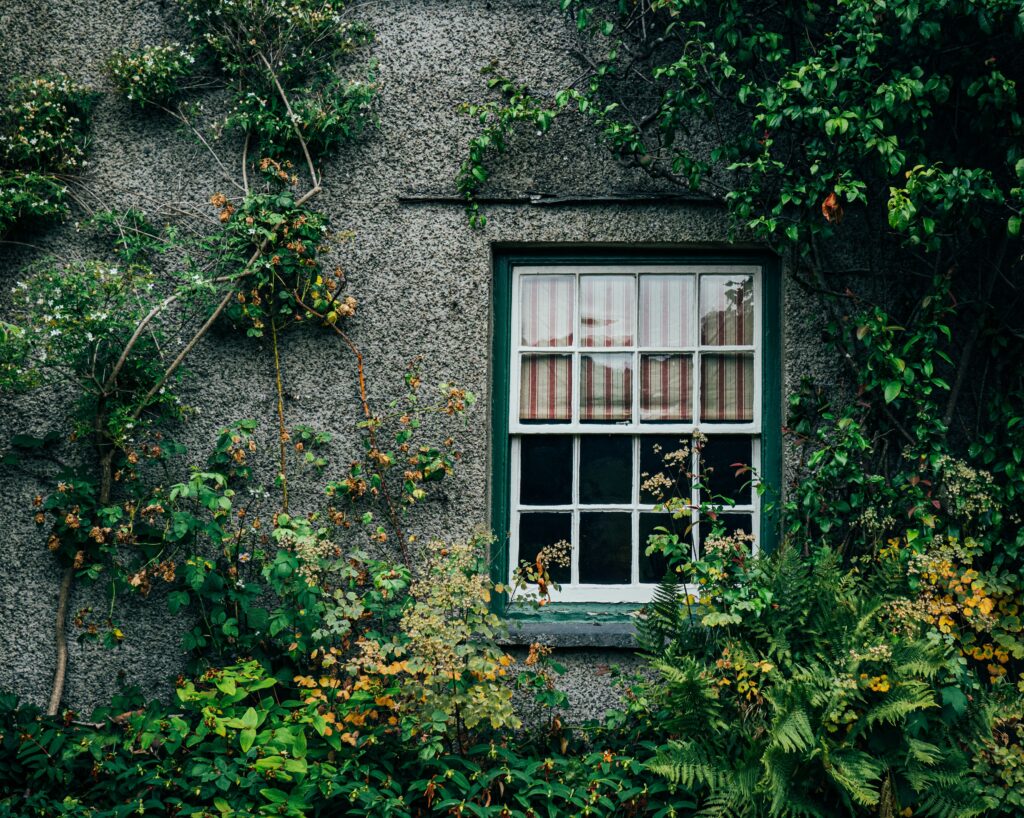Japanese Knotweed Damage
Everything you need to know about Japanese Knotweed and your property valuation in London.
Japanese Knotweed is an invasive, fast-growing plant that can cause significant damage to fences, exterior pathways, and exterior walls to a property. It is known to decrease house prices by 10% to 15%, depending on the severity of the case.
If you suspect that your property has Japanese Ivy growing, or you’re concerned about this plant on a neighbouring property, talk to one of our experienced RICS Chartered Surveyors here at Crest Surveyors for more information on how we can help.
What is Japanese Knotweed?
Japanese Knotweed is a type of rapid-growing ivy that, if left to grow, can become destructive and damaging to external property walls and other exterior structures, such as paths, drains or fences. It’s identifiable through its rich green, heart-shaped leaves and bright white flowers (when in bloom).
In early Spring, this type of ivy also develops a bamboo-like stem that can grow up to seven inches. This is strong enough to damage the core foundations of your property, and it can take years to control and thoroughly destroy the plant to prevent any further damage. For this reason, it’s known as an invasive plant, and property owners will need the help of a surveyor to prove that its growth is under control.
What is the current UK law on Japanese Knotweed?
Under the Environmental Protection Act 1990, it is illegal to attempt to remove and destroy this plant yourself, especially in relation to where the plant is disposed of. Because of the fast-growing nature of this plant, and how difficult it is to remove it, a specialist will need to remove and destroy any Japanese Knotweed that is on your property.
If you are planning on selling the property, you will also need to disclose the existence of this plant on your property. Ideally, it is best to do this before you put your house on the market, so that you are provided with an accurate valuation of how much the property is worth, and so a treatment plan can be put in place for a potential buyer. If you are considering selling your property, or you’re keen to learn more about the effect of this damaging Ivy on your house or in your garden, our expert team is here to help.
What do I need to know before buying a property with Japanese Knotweed?
If you’re considering purchasing a property that may have Japanese Ivy damage, then there are important factors you need to consider. The first is investigating the extent of the damage. You will need a full surveyor report to provide to your lender by a RICS Chartered Surveyor when you apply for your mortgage. It’s important to consider that if the damage is significant, then your loan may be refused. In some instances, you may need to provide a management and control plan, with insurance, to demonstrate how you plan to manage the infestation.
But, it’s not just your property you need to consider. When purchasing a home, you will need a surveyor to examine whether there is Japanese Ivy present on any neighbouring properties that may affect yours. This includes any outdoor spaces, such as gardens.
How Crest Surveyors in London can help you
If you’re concerned about the growth of Japanese Ivy on your property, or on a neighbouring property in London, then the experienced team at Crest Surveyors can help. Simply get in touch, either by phone or by simply filling in the contact form below, and we can provide you with further information on what survey will be best for you.
Yes, it is possible to treat and effectively dispose of this invasive plant. It’s important that this is conducted with specialist help so as to follow all the laws and regulations regarding minimising the spread of this ivy.
It is the responsibility of the land owner to safely remove and dispose of this plant.

